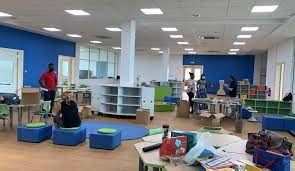Price of toddler schools in Ghana

Education is crucial for a child’s development and future success. For many Ghanaian parents, finding an affordable and quality toddler school is an important consideration. As the demand for early childhood education rises in Ghana, many parents seek to understand the pricing structure of toddler schools and what factors influence the costs.
The Price Range for Toddler Schools
Toddler schools in Ghana can range in price from 100 to 3,000 GHS per term. Typically, public or government-sponsored toddler schools on the lower end of around 100-500 GHS per term. Private toddler schools in middle-class neighborhoods average 1,000 – 2,000 GHS per term. High-end private international toddler schools aimed at expats and wealthy Ghanaians cost 2,500 – 3,000+ GHS per term. The wide range indicates the diversity of options and costs for toddler education across Ghana.
Factors affecting the Price of toddler schools
Location
Toddler schools in urban centers like Accra and Kumasi come at a premium. Rent and operational costs are higher in major cities. Rural toddler schools are more affordable.
Facilities
Modern, high-quality facilities like air conditioning, large classrooms, and updated materials increase costs. Basic facilities reduce fees.
Teacher Salaries
Schools with highly educated, experienced teachers have higher staff costs to pay higher wages. This gets passed onto parents through fees.
Curriculum
International curriculums like Montessori and Reggio Emilia require specialized training and imported teaching materials which raise prices. Local Ghanaian curriculum is less expensive to implement.
Class Sizes
Low pupil-to-teacher ratios allow more individual attention but require more teachers and infrastructure. Large classes of 25+ pupils reduce costs per child.
Extra Services
Extra services like transportation, meals, uniforms, and extended childcare hours add to the overall fee amount. Streamlined services keep prices lower.
- Advertisement -
Conclusion
The price of toddler schools in Ghana varies widely based on location, facilities, staffing, curriculum, class sizes, and extra services. By understanding the factors that increase costs, Ghanaian parents can evaluate programs and find the right fit based on their budget and needs. Ultimately, Ghanaians seek to balance affordability and quality when investing in their child’s formative early education.


